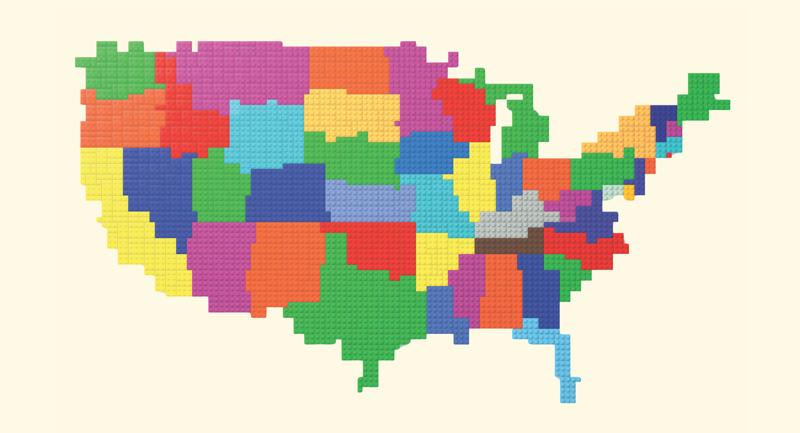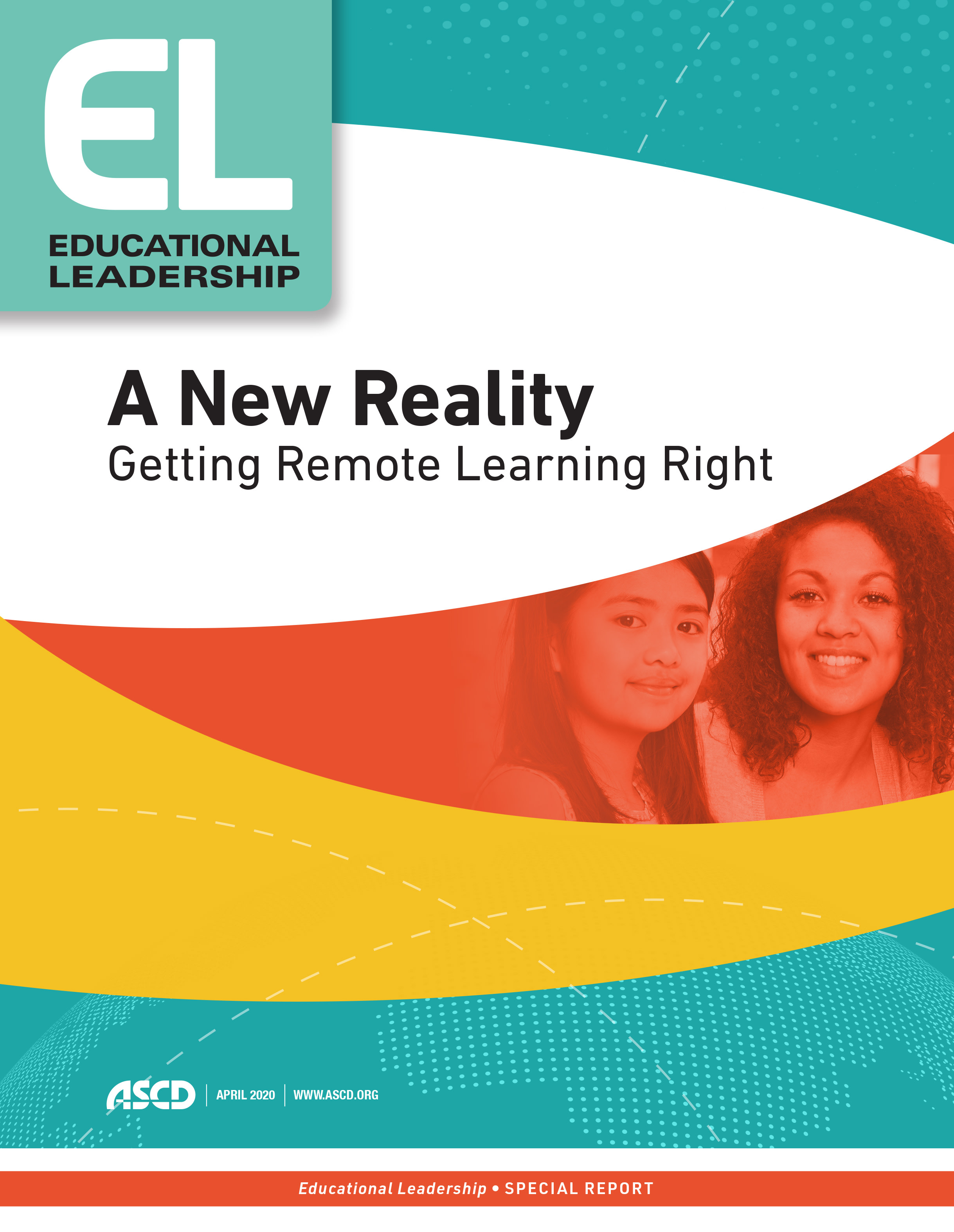In the interests of protecting the health and safety of our communities from the coronavirus, schools are closing their doors, not only through the end of spring break, but beyond, some even until the end of this school year.
Among other issues, this brings up the question of grading. Because the grades students receive are used for many high-stakes decisions—course placement, graduation, scholarships, college admission, etc.—policymakers and district leaders are looking for expert guidance on whether, and how, to grade students during this very challenging time.
The grading recommendations provided below are grounded in research on effective evaluation, culturally responsive teaching and learning, and my organization's (Crescendo Education Group) work in multiple geographic and socioeconomic contexts. They also incorporate feedback from teachers and school and district leaders. These recommendations are based on three major factors:
1. Stress related to COVID-19 will negatively impact student academic performance. Everyone is affected by the stress of the global pandemic, and this stress is expected to grow as the number of people infected, and who become sick or die, increases. It will become more likely that each of us will know someone or have family members with the coronavirus. Plus, the economic impact of this crisis will become more severe, with more people out of work and requiring financial assistance. Not only has research directly linked parents' job losses to lower student performance, but economic strain within a family adds stress and anxiety, which creates additional adverse consequences such as increased domestic violence (Hoge, 2020). While schools often provide some measure of mental health services, students are now unable to access them. Additionally, the health- and economic-related stress caused by the coronavirus will likely be disproportionately felt by students in lower-income families, who are more vulnerable to economic downturns and more likely to experience food and housing insecurity. We also know that grades themselves are a significant source of stress to students and will only exacerbate the pressure they already are experiencing.
Finally, stress and anxiety hampers cognition, particularly with higher-demand tasks involved in learning (Vogel, 2020). Students will be unable to process new material or demonstrate their knowledge and understanding of course content. Their performance on quizzes, tests, or other assessments will assuredly be compromised and will not accurately reflect their learning. This impact will be more acutely felt by lower-income students and those with special needs. 2. Student academic performance during school closures is more likely to reflect racial, economic, and resource differences. Many schools have entirely shifted to remote instruction, and never in the history of our country has a student's learning been so dependent on home technological resources—a situation that has exposed glaring inequities (Reilly, 2020; Sonali, 2020). Some students do not have consistent access to technology because of a lack of computers or internet access in their homes. In addition, families with several school-age children may require multiple computers and higher bandwidth. We also know that parents who have a higher education background or who have more resources are able to provide more academic supports for their children, immediately and over the long haul. During school closures, parents (including teachers) have been asked to assume more responsibilities to support and even teach their children, which means that the capacity of parents to support remote instruction will now have a greater influence on students' learning.
And there is another complicating dynamic: Parents who are in the health or medical professions or who provide other "essential" products or services—including hourly employees in public transit, sanitation, grocery stores, and pharmacies—are less available to their children than parents in other professions during this critically important time.
Schools always strive to provide sufficient supports to students to compensate for differences in family resources and level the playing field. But in this new context, most schools are unable to do that as effectively, thereby exacerbating these disparities. The inequitable result is that students' academic performance will reflect their home environments more tightly than ever.
3. Most teachers have not been adequately prepared to provide high-quality instruction remotely. Even among our most dedicated teachers, most have received little, if any, preparation to provide distance-learning instruction. Effective online learning requires carefully tailored instructional design and planning, using a specialized model for design and development (Hodges et al., 2020). It is more than using online learning applications (which, for some teachers, pose a very steep learning curve), it's not simply having students progress through their school class schedule in virtual classes all day long, and it's not just posting worksheets and readings on a website. Yet these rudimentary translations of in-class teaching may be the best that most teachers can do, given that they themselves are also likely grappling with the significant stress and anxiety of physical distancing and the health and safety of their families. Plus, with students doing all of their work outside the classroom, it is impossible for a teacher to ensure that any work submitted is entirely the student's; it could be the performance of an older sibling, a parent, or even a peer.
Grading in a Time of Crisis
We are living in a difficult, unprecedented period, and educators are working hard each day to do the best for their students and provide learning in adaptive ways. Based on the three factors just described, my grading recommendations for school districts in this time of crisis are as follows:
Summary Recommendation
Because grades describing student knowledge and understanding of course standards will assuredly be inaccurate during this time, no grades should be awarded as of the date schools were closed due to the coronavirus. This is especially important for lower ages (kindergarten through 9th grade), when grades have far less consequence.
Use Only Pass/Incomplete Grades
If grades do need to be awarded—such as at the high school and postsecondary levels—the only grades for the second semester of the school year should be either "Pass" or "Incomplete" instead of the traditional 0–100 percentages and A–F letter grades. Schools use percentages and letter grades primarily to distinguish among students and suggest precise distinctions of course content knowledge, but this specificity is impossible when such significant doubts exist about the integrity or fairness of student performance data. Letter and percentage grades also can add stress and anxiety to students, and Pass/Incomplete grades give students some relief during this extremely stressful time.
A student should receive a "Pass" for the second semester if, at the time her school was closed due to the coronavirus, she was meeting minimum standards in a course. Any student who was not meeting minimum standards in the course up to that point should have the opportunity to fulfill the requirements remotely and receive a "Pass" for the course. If a student is unable to meet the requirements for whatever reason, they should receive an "Incomplete" for the course and, when schools reopen, be provided sufficient opportunity to fulfill requirements. Yearlong courses in which semester grades are normally combined should be bifurcated into two separate reports—a letter grade for first semester and a Pass/Incomplete for second semester.
If Grades Are Necessary, Make Them Temporary
If the school or district context requires that an A–F letter grade must be assigned, schools should explicitly frame the grade as a temporary description of what a student has demonstrated based on incomplete information. The district should provide opportunities, once schools reopen, for a student to learn the course content and improve the grade assigned during the school closure period.
Don't Leave the Choice of Grading to the Student
Several universities and colleges are allowing students at the end of this semester to decide whether a course should be Pass/No Pass or graded A–F. This apparently reasonable compromise actually perpetuates inequities; it gives students with access to technology and resources the advantage of being able to earn a letter grade, while the less-resourced student cannot realistically exercise that choice.
Have Students Sign an Integrity Agreement
Districts and schools should ask students to sign a "remote academic integrity agreement" in which they promise that all work submitted was completed without any additional assistance, unless specified by the teacher. This agreement helps the school or district reaffirm its expectations for students and increases students' investment in their learning. It also builds teachers' confidence that the work students submit is their own. Of particular importance during this crisis is that educators consider and use these agreements not as "gotcha" traps to disqualify student work, but rather as a tool to build responsibility and trusting relationships.
Teachers should continue to give detailed feedback to students on their performance, to support learning. Teacher feedback could be communicated through online meetings or web-based applications, and will give students valuable insight into their understanding, guidance on how to improve, and motivation to learn and grow. Research supports the impact of nongraded feedback to focus students on learning rather than performance (Butler & Mordecai, 1986), and when the psychological and intellectual "load" on students and their families is so significant, it is important that schools lean on the side of support and learning rather than competition and high-stakes performance.
Students, Not Grades, Come First
Once a grading policy is decided on, districts and schools should issue a statement to families that explains the policy and how it aligns with their overarching beliefs about learning, equity, and children. Several policymakers and superintendents are already implementing these policies. For example, the superintendent of the School District of Philadelphia announced that because some children are not able to access technology or complete assignments, teachers cannot require or evaluate any remote work. Both Virginia and Kansas schools, which are physically closed for the remainder of the school year, have also stated that student work should not be graded during this time. If parents and others are concerned about whether or not awarding traditional grades will make their children less competitive or eligible for opportunities (e.g., scholarships and college admission), school leaders should reassure them that it is almost certain that institutions that make decisions based on grades—such as colleges and the NCAA—will make adjustments and allowances because of the global upheaval caused by COVID-19.
During this challenging and stressful time, it is important to act in the best interests of children. The only way schools can properly recognize the almost unimaginable stress and anxiety that the coronavirus has and will have our communities is to not evaluate and assign grades for remote learning during the remainder of the 2019–20 school year. In this way, we affirm that all grades must be accurate, that they must be equitable and, most of all, that they support learning.






